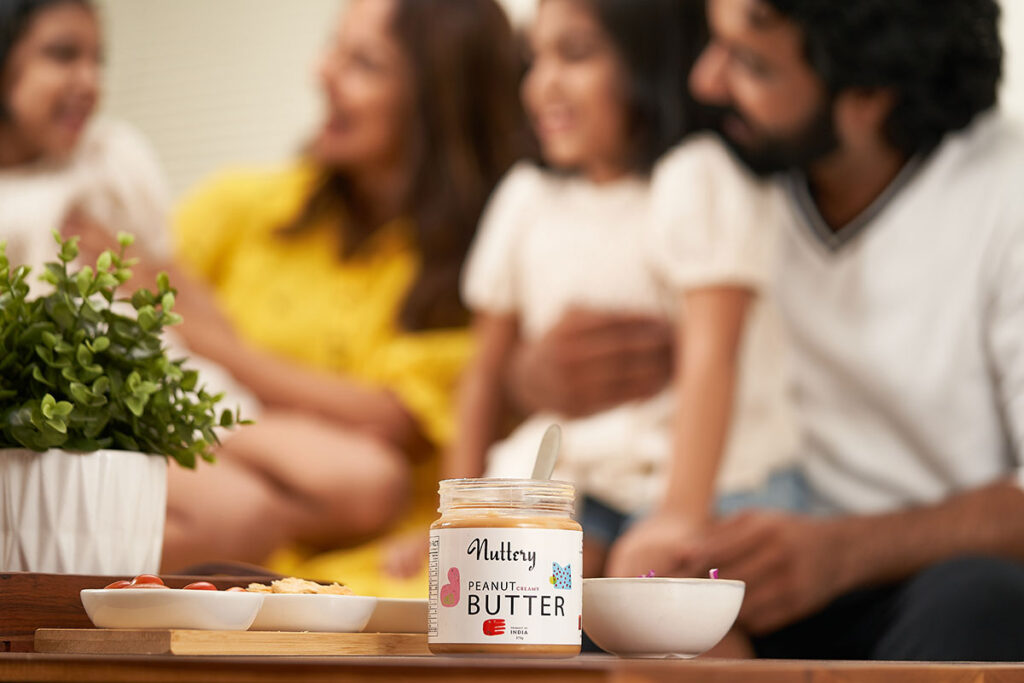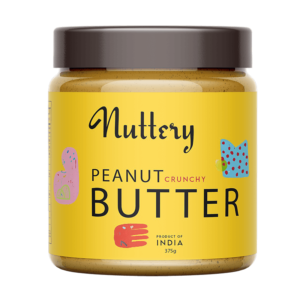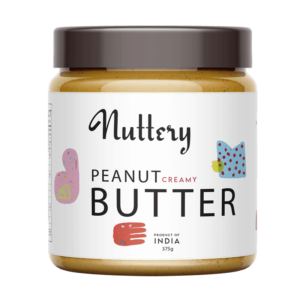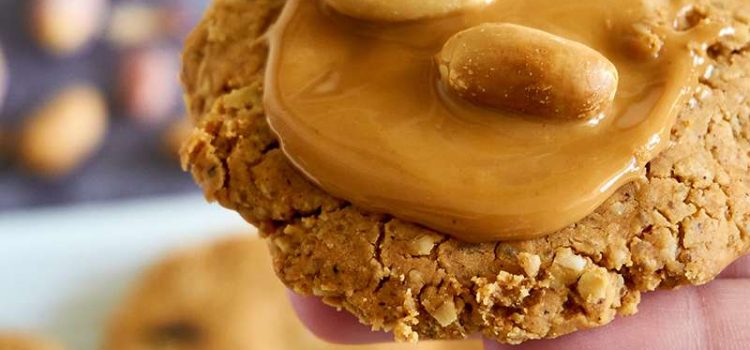It is a daunting task when it comes to selecting the best peanut butter in town. In this article, we would explain the various factors to be considered when selecting peanut butter.
Niacin, folate, and vitamin E are just a few nutrients abundantly found in peanut butter. Peanut Butter is high in protein and fiber, peanut butter provides the body with energy and primes it for strenuous physical activity. It is the type of nut butter known for enhancing body immunity and metabolism.

For a vigorous start to the day, it can be consumed in various ways in the morning with toast, buckwheat pancakes, oatmeal, coffee, or smoothies. Its high caloric content helps satisfy hunger pangs. The number of nutrients it contains in just one serving—which often includes potassium, magnesium, and a substantial amount of dietary fiber—makes it also highly full. Let us go over some factors differentiating the good-quality peanut butter exporters like Nuttery from the low-quality ones.
1. No Artificial Colors
2. High-Quality Ingredients
3. No Flavor Enhancers.
4. Big No to Preservatives
5. No Stabilizers
No Artificial Colors
A peanut butter manufacturer also needs to maintain the color of their product through quality control measures. Some companies may resort to artificial colors in a race to get that right “brown” or “almond-ish” color texture to their peanut butter. These colors are synthetic, created in a laboratory as opposed to naturally occurring.
According to Consumer Watchdog CSPI, certain food dyes are directly linked to causing cancer. Being highly processed and containing little to no nutrients, artificial food colors may lead to other conditions such as hyperactivity, ADHD, and allergic reactions. So, steer clear of peanut butter brands whose ingredient list reads “natural coloring” or “artificial coloring” – they’re the same.
High-Quality Ingredients
High-quality peanut butter primarily contains peanuts. Ethical and mindful peanut butter manufacturers will ensure that other ingredients such as sugar, hydrogenated oils, etc., would make up 10% or less of the product. They also ensure the peanuts are good-quality, not stale.
When done so, the shelf life of the product increases without compromising the quality of ingredients or health. In any case, always check the expiry date of the respective product before making assumptions that it may last a year or even six months.
No Flavor Enhancers
If the integrity of peanut butter is maintained, every jar will probably taste slightly different from the others. This is perfectly normal since nature does not believe in standardization. In any case, as long as the butter does not emit the rotten smell or taste of peanuts, you’re fine.
However, certain peanut butter manufacturers include flavor enhancers when adding oils to the grinding machine. These enhancers (primarily chemicals) are supposed to enhance or supplement the product’s natural taste. The greatest risk of consuming foods with MSG or flavor enhancers is that they are highly addictive.
These toxic chemicals will always leave your taste buds wanting more. Moreover, people have reported experiencing nausea, dizziness, swollen tongue or eye, cough, shortness of breath, and hives (rashes) from consuming excessive flavor enhancers. So, you choose – a temporary kick for the tongue or long-term health?
Big No to Preservatives
In the case of peanut butter, sodium benzoate is usually used as a preservative to help extend shelf life and prevent mold growth. The active ingredient responsible for preserving peanut butter is benzoic acid.
If you’re asking whether benzoic acid is safe to consume, the answer is no! Misleading information is always available, saying low exposure should not cause problems. But even low quantities of the acid in your bloodstream can cause gastric pain, vomiting, food poisoning, nausea, and similar allergic reactions. Why choose such a counter-productive route when you’re planning to consume peanut butter to enhance your health?
No Stabilizers
Companies, even peanut butter exporters of today, are masters at taking a bountiful gift of nature and turning it into a completely different (fake) product. Stabilizers such as sodium alginate, gelatin, etc., are touted for their ability to retain peanut butter’s natural texture, chemical, and physical properties.
But the dark side is that these chemicals directly affect the body’s neurological system. Their potential to cause cancer is bad enough, but they may even alter behaviors and moods. Now you know why a majority of the population (both kids and adults) are hooked on harmful foods that affect their psychological well-being. Say no to peanut butter brands offering stabilizer-laden nut butter.

Health is Wealth!
Last but not least, remember that no matter how nutrient-dense anything is, eating too much of anything is bad. Peanut butter can potentially make you obese if taken daily in large amounts. The most crucial thing to remember when eating peanut butter is to keep one’s daily serving to two tablespoons due to its high-calorie content.
A wonderful approach to guarantee that you always obtain fresh peanut butter is to purchase it from peanut butter manufacturers like Nuttery. Nuttery encourages innovative thinking and challenges the established quo. They upend the status quo by making their items attractively packaged, providing them to clients fresh, and extending exceptional customer service. Want taste and health all packaged into a single jar? Choose Nuttery!







